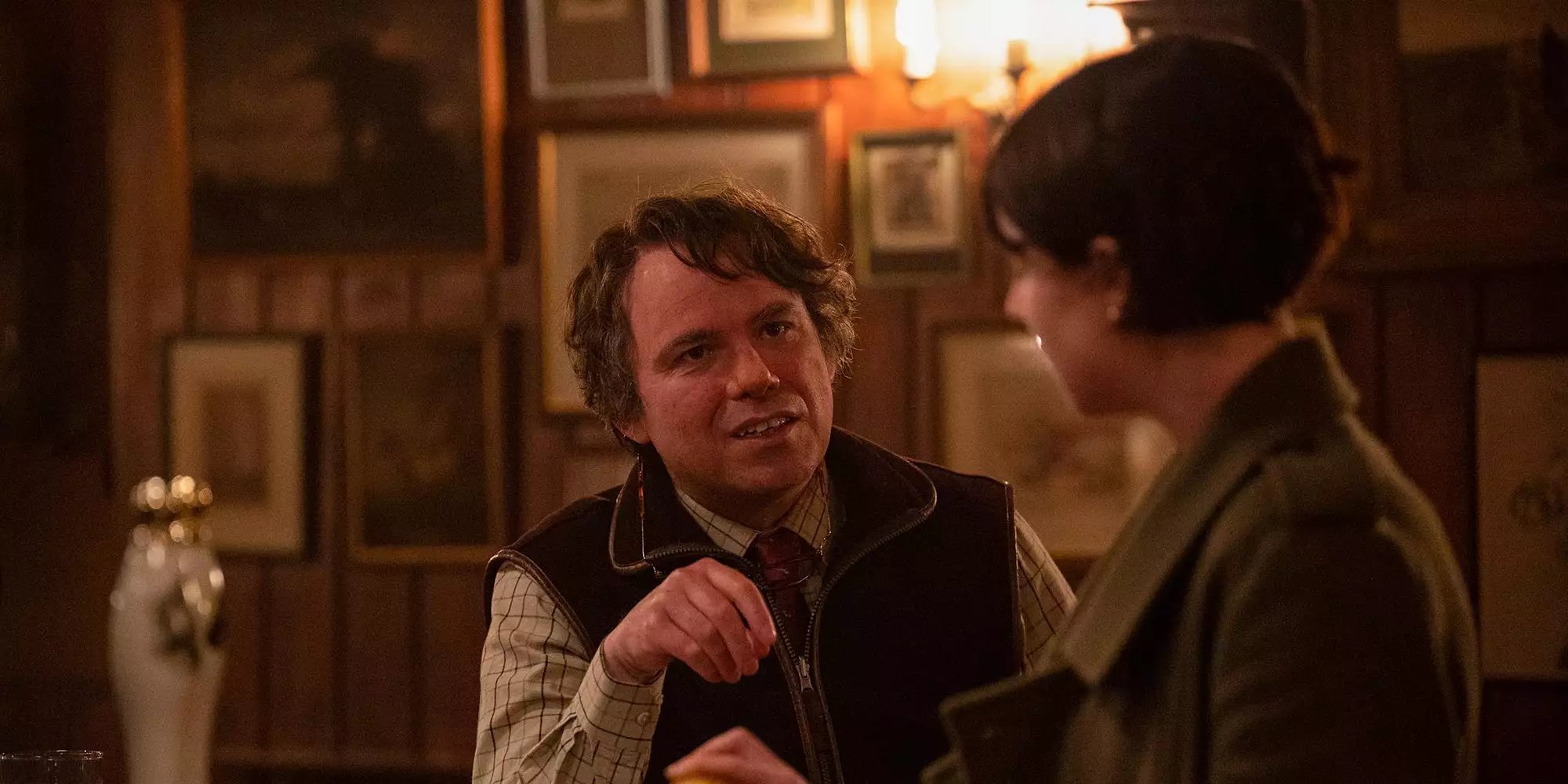Men
Directed by Alex Garland
Running time: 1hr40 | REVIEWED BY CATHERINE BRAY
Several Rory Kinnears and Jessie Buckley star in Men
Something is rotten in the heart of England. At first, when Harper (Jessie Buckley) shows up for a restorative getaway in a quintessentially English home, this remote village feels like a space in which you can repress your reservations about England’s dark side. The centuries-old house conjures JB Priestley waxing lyrical about honey-hued Cotswold stone: “Even when the sun is obscured and the light is cold, these walls are still faintly warm and luminous, as if they knew the trick of keeping the lost sunlight of centuries glimmering about them.” The greenery in the land around is lush and fertile. The bluebells are shockingly pretty. There’s a church and pub.
Her host, Geoffrey (Rory Kinnear), fits in with all this. He’s not attractive, but there’s a picturesque, bumbling appeal to this caricature of a particular type of Englishman. Uncomfortable with silence, uncomfortable with emotion, he fills the air with a stream of idiomatic chit-chat and bits of verbiage that look and feel like jokes, even if they aren’t, exactly. Sometimes, he makes an actual joke, but it feels as heavy as his dark-green waxed jacket: the pub, for instance, is a “ten-minute walk there, thirty-minute walk back.” You feel sorry for him.
And pity is a key emotion in this film’s psychological landscape. Is anybody owed pity? Can it be demanded? Does pity create a bond which cannot voluntarily be broken? In Alex Garland’s extraordinary horror film Men, pity is wielded as a terrifying weapon of control. Victim status is malleable and subject to extraordinary bad faith inversions, prosecuted on the spurious basis of knowledge-as-responsibility, along gendered lines.
Not for nothing does one of the film’s most sinister characters, a vicar (Kinnear again), quote one of the grimmest poems in literature, in which Zeus, disguised as a swan, rapes Leda, the woman who goes on to become the mother of Helen of Troy.
A shudder in the loins engenders thereThe broken wall, the burning roof and towerAnd Agamemnon dead.Being so caught up,So mastered by the brute blood of the air,Did she put on his knowledge with his powerBefore the indifferent beak could let her drop?
To put it more crudely: the swan comes inside Leda, setting in motion the destruction of Ancient Greece. Then, an ambiguous, slippery question about knowledge gained as a result of the encounter, slyly reframing what has happened in terms of an exchange, rather than violation. Possibly even an equitable exchange.
That constant, age-old sense of reframing on somebody else’s terms starts to mess with Harper’s mind, as her time in the village becomes stranger. Rory Kinnear plays every man she encounters, with perfect dream logic. Harper is forced by circumstance to consider every man she encounters in terms of whether or not he is a threat to her: since there’s no way to tell if he’s dangerous until he behaves dangerously, this necessitates a point of view where each man is as potentially dangerous as the next, and is therefore totally interchangeable. (This won’t feel at all unfamiliar or hard to parse for most women — it’s just the nightbus POV, the walking home late at night POV, the unfamiliar city POV.)
Unlike some of the lesser entries in the canon of movies engaging with a sociopolitical theme through horror devices, Men feels set free, rather than hemmed in, by the poetic visual language it has developed in response to some very dark realities. It is shot through with a wicked streak of observational humour that made me cackle out loud multiple times. I felt rather as if the village in Night of the Demon (1957) was playing host to characters created by The League of Gentlemen, with their cavalcade of larger-than-life gargoyles. But perhaps that’s unfair, taking away, as it does, from the utter singularity of Garland’s gorgeously grotesque vision, and those fearless, powerhouse performances from Buckley and Kinnear. I wonder if they’ll get any best ensemble cast awards nominations? They deserve it.
MEN (2022) Written by Alex Garland | Shot by Rob Hardy | Edited by Jake Roberts
This review previously ran at the Cannes Film Festival
